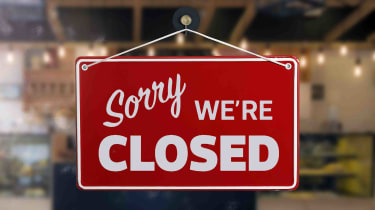Is the stock market open today? Well, you can answer that question at any point throughout 2022 with the following handy guide.
Here, we provide a schedule of stock market holidays and bond market holidays across all of 2022. Please note that regular trading hours for the New York Stock Exchange (NYSE) and Nasdaq Stock Market are 9:30 a.m. to 4 p.m. Eastern on weekdays. The stock markets close at 1 p.m. on early-closure days; bond markets close early at 2 p.m.
Note that the list of stock market holidays has actually grown by one in 2022. That’s because Congress voted in 2021 to make Juneteenth – the June 19 holiday commemorating the end of slavery – the 12th federal holiday. When President Joe Biden signed the bill, Juneteenth became the first new federal holiday since Martin Luther King Jr. Day., which was signed into law in 1983.
Just note that in 2022, the markets will close on Monday, June 20, in observance of Juneteenth, as the actual holiday falls on a Sunday.
2022 Market HolidaysDateHolidayNYSENasdaqBond Markets*Monday, Jan. 17Martin Luther King Jr. DayClosedClosedClosedMonday, Feb. 21Presidents’ Day/Washington’s BirthdayClosedClosedClosedThursday, April 14Maundy ThursdayOpenOpenEarly close
(2 p.m.)Friday, April 15Good FridayClosedClosedClosedFriday, May 27Friday Before Memorial DayOpenOpenEarly close
(2 p.m.)Monday, May 30Memorial DayClosedClosedClosedMonday, June 20Juneteenth National Independence Day (Observed)ClosedClosedClosedFriday, July 1Friday Before Independence DayOpenOpenEarly close
(2 p.m.)Monday, July 4Independence DayClosedClosedClosedMonday, Sept. 5Labor DayClosedClosedClosedMonday, Oct. 10Columbus DayOpenOpenClosedFriday, Nov. 11Veterans DayOpenOpenClosedThursday, Nov. 24Thanksgiving DayClosedClosedClosedFriday, Nov. 25Day After ThanksgivingEarly close
(1 p.m.)Early close
(1 p.m.)Early close
(2 p.m.)Friday, Dec. 23Christmas Eve (Observed)OpenOpenEarly close
(2 p.m.)Monday, Dec. 26Christmas Day (Observed)ClosedClosedClosedFriday, Dec. 30New Year’s Eve (Observed)OpenOpenEarly close
(2 p.m.)* This is the recommended bond market holiday schedule from the Securities Industry and Financial Markets Association (SIFMA). This schedule is subject to change.
Stock Market Holiday ScheduleThe NYSE and Nasdaq stock markets typically observe 10 holidays each year:
New Year’s DayMartin Luther King, Jr. DayPresidents’ DayGood FridayMemorial DayJuneteenthIndependence DayLabor DayThanksgiving DayChristmas DayIn certain circumstances, the stock market will close early in the days preceding or following market holidays. The NYSE and Nasdaq will close at 1 p.m. the day after Thanksgiving; on Christmas Eve, if it falls on a weekday; and on July 3, if both it and July 4 fall on a weekday.
Sign up for Kiplinger’s FREE Investing Weekly e-letter for stock recommendations and other investing advice.
Bond Market Holiday ScheduleThe bond markets observe the same 10 holidays, as well as two additional holidays:
Columbus DayVeterans DayThe bond markets also observe several early closings at 2 p.m. each year:
The Friday preceding Memorial DayThe Friday before Independence DayBlack Friday (the day after Thanksgiving)Christmas EveNew Year’s EveA couple small differences from 2021: The bond market is back to being off on Good Friday, and it will close early on Maundy Thursday.
When it comes to the stock and bond markets alike, if a holiday falls on a weekend, market closures are dictated by two rules:
If the holiday falls on a Saturday, the market will close on the preceding Friday.If the holiday falls on a Sunday, the market will close on the subsequent Monday.Stock and Bond Market HoursThe “core trading” stock market hours for the NYSE and Nasdaq are 9:30 a.m. to 4 p.m. on weekdays. However, both exchanges offer premarket trading hours between 4 and 9:30 a.m., as well as late trading hours between 4 and 8 p.m.
Bond markets usually trade between 8 a.m. and 5 p.m.
Why does the stock market offer such limited hours when there are people who would want to buy and sell 24/7?
One of the main reasons is “liquidity,” which is how much buying and selling is going on at a given time. The more liquidity in a particular security, the likelier you are to get a fair price on it; the less liquidity, the more likely you might have to settle for a less-than-ideal price to finish off a transaction.
“For the market to function effectively, you need buyers and sellers,” says Charles Sizemore, principal of Sizemore Capital Management. “This is why the stock market has set hours that happen to correspond to the East Coast workday. You want the maximum number of traders buying and selling at the same time.
“If you were at an estate auction selling your grandmother’s antiques, you’d want a lot of bidders there. It’s the same rationale in the stock market.”
Data provided by the NYSE and SIFMA.
